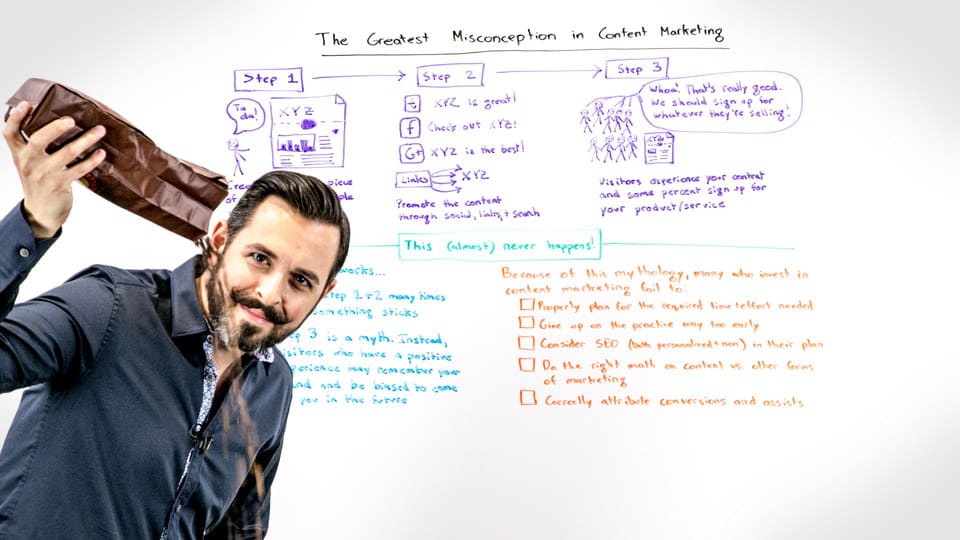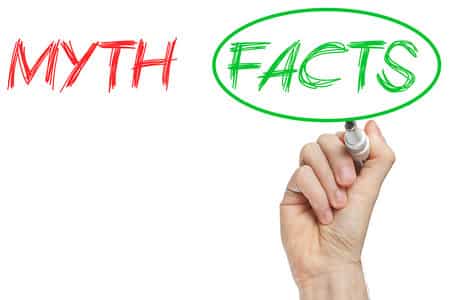As a small business consultant, there was no bigger thorn in my side than business owners who expected overnight success. Even if they pretended to disavow such notions, their egos wouldn’t let it go.
“We’ve been blogging for three months,” said the owner of an eye wear company I advised. “Why aren’t we seeing any movement? I’m in Google Analytics all day, every day, and I’m seeing no activity.”
After talking myself out of saying something smart-alecky [“Maybe, if you worked on promoting the business instead of watching a screen, we wouldn’t be having this conversation.”], I always brought them back to words I’d spoken early on, usually during our first or second conversation.
“Content marketing takes time. You do realize that? It won’t happen tomorrow, tonight or next week. We’re laying the groundwork for successes that will materialize months and months down the road.”
They always agreed; they always came back with the same, tired message: “When can I expect to see something? All I see is stuff (i.e., money) going out. I need to see something coming in.”
I still sigh loudly when thinking of such conversations.
How Bad You Want It Has Little Impact On How Fast It Happens
Sadly, even today, those interactions continue, with clients large and small.
They nod approvingly when I highlight how content, SEO and social media are part of the long game. Their behavior in the weeks following these talks says otherwise.
Some blame it on the “I-want-it-now” culture. I do not.
I genuinely think it arises from the belief that we are somehow special, different, and our idea is deserving of overnight success.
As someone who worked in product design for more than a decade, having logged time on ideas ranging from fishing lures to social-sharing apps, I can say with confidence that no client has ever thought their idea was less significant than the competition’s.
I cannot tell you how happy I was to see Rand Fishkin of Moz cover this topic in a recent Whiteboard Friday, “The Greatest Misconception in Content Marketing.”
I had a visceral reaction to the video, for my mouth dropped open and I applauded throughout while sitting in my office.
Three points he made stood out for their simplicity and their veracity:
- If content marketing was easy, everyone would be doing it, and it likely wouldn’t be much of a viable idea, concept.
- What might seem like slow progress should be viewed as foundation building.
- Even if you have a great idea, gaining traction and growing the business takes time.
Meaningful Work for Clients
I’ve learned the best way to keep clients motivated and focused on what matters is to give them relevant, meaningful tasks to work on, allowing them to “see” tangible progress early on. Typically, I have them do the following:
1). Commit to social media. It might seem like a small thing, but watching their fans and followers grow on Twitter, Facebook, Instagram, Linkedin, Pinterest and Google+ can be a euphoric experience for new business owners.
Also, identifying, building and engaging with their audience is a form or measurable growth that pays huge dividends down the road. Maybe most important, however, is they get to uncover what messaging works best for each platform, setting them up for persona development across each platform.
2). Get offline. Digital marketers love to quote statistics, including the one about 8 out of 10 purchases “beginning” online. For most small and midsize businesses, however, owning the local space has to be a priority first, and a large part of that battle is waged by pressing the flesh, meeting with local vendors, prospects and city officials, including the mayor, city council members and members of the local chamber of commerce.
By being a well-connected business owner, you are privy to information most folks are not, and some of that information can be hugely beneficial. (For example, one small business I worked with leased space in what seemed like a moribund shopping mall, only because she was made aware that the city was negotiating with a major grocery retailer as the anchor for the location.)
3). Awaken the inner PR person. I cannot tell you how many times I’ve heard “I’m not a natural promoter.” Good. You can grow into it. As the owner/founder/CEO, you are in the best position to carry the message of your brand. No one can do that better than you. Therefore, excusing away this responsibility to “I’m not good at it” is unacceptable. Remember, many of today’s most successful businesses first gained popularity because of the visibility, pro-activeness of their owners. (Look no further than Buffer as a great example.)
PR: You can start small:
- Send a letter to the business page editor of your local paper
- Join a local business club or organization
- Ask to write a column for a regional trade publication
- Agree to sponsor a local event or charity
- Offer to speak at a Meetup in your area
As you can see, once the notion of overnight success has been successfully quashed, there is plenty of real, meaningful and impactful work to occupy your time.


